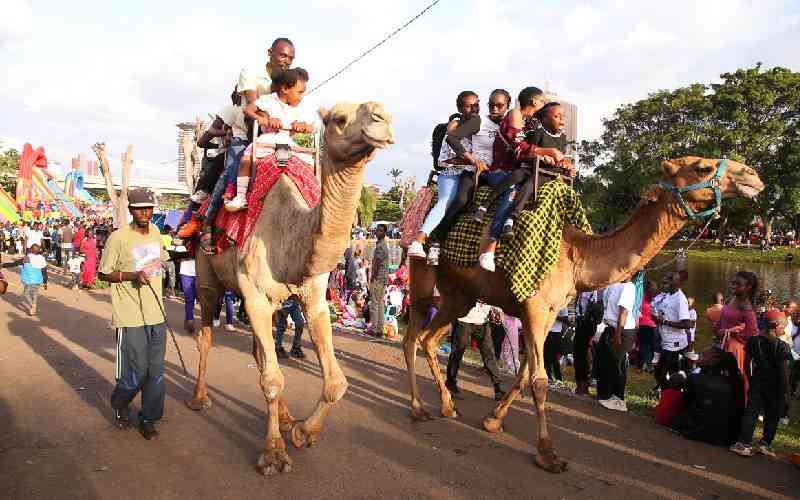The current Gaza war broke out on 7th October, just over a month ago. In that time, I have written two pieces on different aspects of that war.
Like many commentators, I have been fixated on Gaza, failing to continually remind the world about the vicious and brutal war happening closer home where the death toll and displacement of people is also of shocking proportions.
Since the 2019 overthrow of long-serving Sudanese President Omar Al Bashir, Sudan has not known a day of peace. An attempt to put in place a civilian administration to replace President Bashir failed and left hundreds of protestors dead.
Erstwhile allies, Army Commander General Al Burhan who leads the Sudan Armed Forces (SAF) and his former deputy, General Hamdan Galgalo better known as Hemedti, who leads the Rapid Support Forces (RSF), have failed to reach a settlement on sharing power and full-scale war between their forces broke out in April.
At the heart of their struggle are differences of opinion on the role of civilians in a new administration, absorption of the RSF in the national military, and who would lead the army in a new regime.
Many believe however that the war is also a fight for control of Sudan's riches, especially its gold. Since the generals fell out, Sudan has been the theatre of daily bloodletting. In the last six months, more than 10,000 civilians are estimated to have been killed. Some analysts believe the number is much larger.
A United Nations report in July spoke of mass graves in different areas in the country, a matter corroborated by refugees who cross into neighbouring Chad and Central African Republic. More than six million people have been displaced, about four million staying within Sudan while the rest are in refugee camps in South Sudan and Chad or further afield.
Though both factions are involved in acts of violence that affect civilians, mostly as they are caught in the crossfire, the RSF routinely targets civilians and has been responsible for myriad civilian deaths and injuries. This is not surprising.
The RSF originated from the Janjaweed, an Arab militia formed by the Bashir government to deal with the African population in Darfur and which is said to have carried out what is called the 1st genocide of the 21st century. These are the war crimes for which General Bashir and several Janjaweed military leaders were indicted by the International Criminal Court. When they captured Sudanese army headquarters in the West Darfur capital of El Geneina two weeks ago, the RSF is said to have gone on a killing, rape, and sexual violence spree, targeting the non-Arab Massalit people, who have been forced to flee in their thousands towards Chad.
There are reports the militias have not spared refugees and the BBC has reported that in Erdamata, also in West Darfur, a refugee camp was attacked last month, with about 800 refugees killed.
In the same region, just two weeks ago, local Governor Khamis Abubakar was massacred in broad daylight for daring to call out the RSF militia in a TV interview alleging that they were taking part in genocide and asking for international intervention.
As all this goes on, the world appears more focused on Gaza and Ukraine, even as the United Nations warns of grave human rights catastrophe unless the fighting stops, and urgent relief supplies are provided to feed the 24 or so million people in urgent need of relief food. The ICC opened a new probe on the massacres last week with Chief Prosecutor Karim Khan warning the Security Council that history was repeating itself in the Sudan, referring to the 2003 massacres by the Janjaweed.
Sudan crisis must not fall off the world's attention. The ongoing war and collapse of Sudan could have devastating consequences on the region, with spillovers into the still unstable South Sudan, and even into Kenya.
The African Union must own this crisis and reign in the generals, who appear well resourced, and determined to keep fighting. It must push for a peaceful resolution of the conflict. The guns must go silent. The long-suffering citizens deserve better. Cry this beloved continent.
-The writer is an advocate of the High Court of Kenya
Stay informed. Subscribe to our newsletter
 The Standard Group Plc is a
multi-media organization with investments in media platforms spanning newspaper
print operations, television, radio broadcasting, digital and online services. The
Standard Group is recognized as a leading multi-media house in Kenya with a key
influence in matters of national and international interest.
The Standard Group Plc is a
multi-media organization with investments in media platforms spanning newspaper
print operations, television, radio broadcasting, digital and online services. The
Standard Group is recognized as a leading multi-media house in Kenya with a key
influence in matters of national and international interest.
 The Standard Group Plc is a
multi-media organization with investments in media platforms spanning newspaper
print operations, television, radio broadcasting, digital and online services. The
Standard Group is recognized as a leading multi-media house in Kenya with a key
influence in matters of national and international interest.
The Standard Group Plc is a
multi-media organization with investments in media platforms spanning newspaper
print operations, television, radio broadcasting, digital and online services. The
Standard Group is recognized as a leading multi-media house in Kenya with a key
influence in matters of national and international interest.





